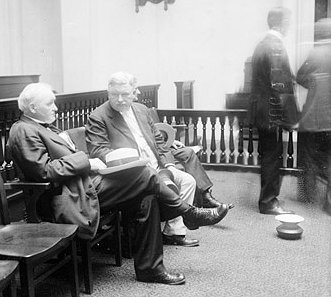The Correlated Word of Wisdom Origin Story
The story of how the word of wisdom came to be is commonly told by the church and fairly simple (see this video), Emma was tired of cleaning up the tobacco after the School of the Prophets met together in her house.


Apparently, the chew and spittle would leak through the floor into her kitchen and she complained to Joseph about it. Ever heard of a spittoon? These were very commonly found in public spaces. Did the school of prophets just have really bad aim? Anyways Joseph took the matter before the Lord – because a human can’t solve that problem? It’s not as easy as setting some house rules against spitting on the floor, or just saying “Don’t spit on the floor” or even “When you spit your chew on the floor, it makes me feel dirty and I don’t want to clean up your nasty spit!”

Anyways, as the story goes, Joseph asks God about this problem and is given this “health code” advice. It is not viewed as a commandment (like the word of wisdom is today) but more like a noble idea as a revelation. The future church leaders will convert it into a required commandment and test of obedience church-wide.
The Unofficial Origins
The official narrative of the church stops there and the church wants us to leave it at that. They likely don’t even want members reading the D&C section because it’s so vastly different than the current interpretations. They just want church members to do what they say basically. The revelation was given, and over time it was revealed to be a commandment. However, like most things in church history (or all of the church literature for that matter), this is not the whole story. There is a whole new interesting side to the revelation behind the word of wisdom when we look to David Whitmer (one of the Three Witnesses of the Book of Mormon). He was around during this time of church history and though the church wants to discredit him (because he left the church) they also want to call him honest (because he’s a key witness to the gold plates). He puts the church narrative to question though, when in a newspaper interview when he says:
Some of the men were excessive chewers of the filthy weed, and their disgusting slobbering and spitting cause Mrs. [Emma] Smith… to make the ironical remark that ‘It would be a good thing if a revelation could be had declaring the use of tobacco a sin, and commanding its suppression’…. The matter was taken up and joked about, one of the brethren suggested that the revelation should also provide for a total abstinence from tea and coffee drinking, intending this as a counter dig at the sisters.
High Priest David Whitmer, one of the Three Witnesses, quote in Des Moines Daily News, October 16, 1886, p. 20
He suggests that as Emma complained about chewing tobacco and even suggested that Joseph come up with a revelation that it was a sin, the brethren also have suggestions of their own about the revelation. The men would sit around and socialize while drinking strong drinks and chewing tobacco. The women on the other hand would sit around and socialize with tea or coffee. So in effect, the “revelation” is a dig at both the men and women of the organization and their “vices”. Feels like a tit-for-tat type of situation like children playing with toys who can’t be made to cooperate or share, they feel if they can’t have things their way, they won’t allow anyone else to either.
Not only is the idea of the revelation planted by Emma, as a complaint about the men. It also contains exactly the jest suggested by the brethren. They knew these substances might not be healthy, but that was nothing ground-breaking. At least it wasn’t introduced as a commandment, that wasn’t until much later in the evolution of the church.
Is the Word of Wisdom Unique
The church likes to claim that this revelation is totally unique and not like anything else of the day, although there is plenty of evidence to the contrary, like the Temperance movement for starters along with the experts of the day.

There is plenty of evidence that the church members or leaders did not follow this non-commandment at the time. Why would they? It wasn’t a commandment! Lesson manuals of today though are set up to paint the story that they did. To be fair, failure to live the word of wisdom is listed as a fault of some when they are excommunicated, but these are usually the people who are speaking against polygamy. It is well documented that Joseph Smith himself did not live the word of wisdom, as discussed Joseph drank and even smoked often.
The charge of “not observing the Word of Wisdom” was one of five leveled against David Whitmer on April 13, 1838, which led to his excommunication. Nevertheless, contemporary records indicate that Joseph Smith was not, himself, a strict observer. Smith is recorded at various times as drinking tea, beer, and wine. There is a report he also smoked tobacco: according to Amasa Lyman, a member of the First Presidency under Smith, Smith once finished preaching a sermon on the Word of Wisdom and immediately afterward rode through the streets smoking a cigar. According to Lyman, this was just one of many instances in which Smith “tried the faith of the Saints … by his peculiarities”.
https://en.wikipedia.org/wiki/Word_of_Wisdom
At least we know that if we are obedient to the “commandment” we will have health in our navels and strength in our bones… like these people, the church shows at the end of their Word of Wisdom video:

Helpful resources to research the Word of Wisdom: